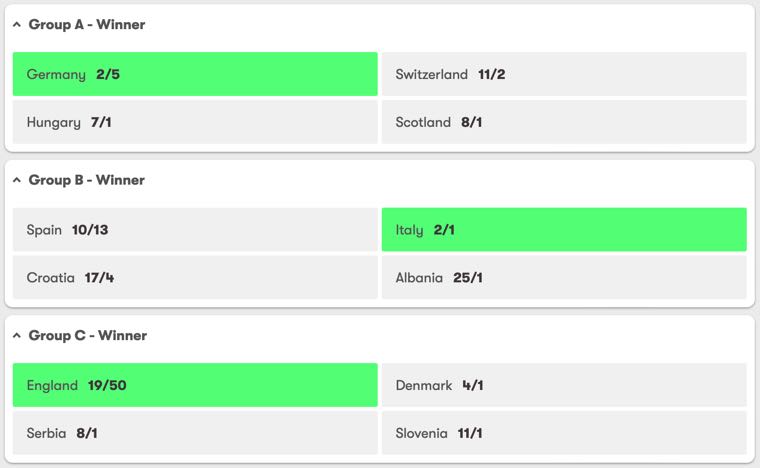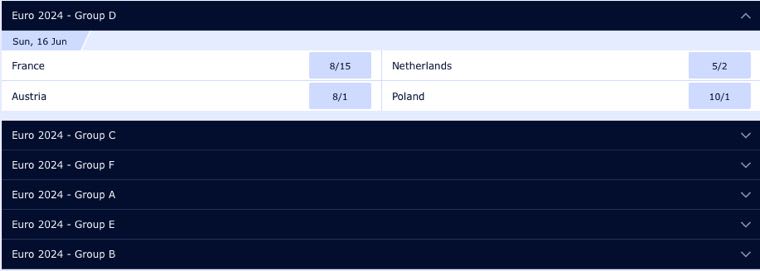 It is becoming more and more commonplace for knockout competitions to get underway with a group before the knockout rounds themselves come into place. From the World Cup to the Champions League via the Europa League and the European Championship, teams have to qualify from their ground before they’re able to enter the tournament proper.
It is becoming more and more commonplace for knockout competitions to get underway with a group before the knockout rounds themselves come into place. From the World Cup to the Champions League via the Europa League and the European Championship, teams have to qualify from their ground before they’re able to enter the tournament proper.
Of course, if they don’t finish in the correct place within their mini-group then a team can still be knocked out, but a single group game loss isn’t fatal in the same way that it would be in a single-match knockout tournament. Betting on the Group Winner can be a tricky prospect.
What You’re Placing Your Wager On

If you’re looking at placing a bet on the Group Winner market then it’s a reasonably self-explanatory wager. You are betting on which team you think will finish at the top of the group and therefore automatically qualify for the next round of the competition. It is usually a good position to finish in as the group winners tend to be drawn against a team that came second in a different group, which makes their chances of progressing to the next round of the tournament much higher. That isn’t a guarantee, of course, as some second-place finishers can be strong, but it is more likely that they’ll be a weaker team.
It is usually a binary bet, meaning that you will win it if your chosen team wins their group and lose it if they don’t. That is as opposed to bets that allow you to opt for the Each-Way selection, which will usually pay out at reduced odds if your chosen team finishes second in the group, for example. That obviously makes it trickier to work out, so you will often find that bookmakers will offer longer odds on Win Only wagers, given the lack of flexibility in the outcome. At the same time, the straightforward nature of the bet often makes it easier for people to know what they want to place it on, knowing they’ll either win it or not.
Things to Think About

Perhaps the most important thing to think about when it comes to betting on the Group Winners market is the structure of the competition. It is not unheard of, for example, for some tournaments to offer places for the ‘best of the rest’. That is to say, in most tournaments it is the top two teams that will qualify out of the group and into the next round. Sometimes, however, the ‘least worst’ third-placed team also makes it through to the next round. This slight buffer can mean that some teams take their foot off the gas, knowing that there will still be a chance to make it through to the knockout stages whatever happens.
Imagine a scenario in which you’re betting on a World Cup group that features Germany, the Netherlands, Denmark and Egypt. Germany are the favourites and win their first game, drawing their second. They know that they are almost certainly through to the next round of the tournament and so they choose to rest some players for the final game, aware of the fact that even if they lose it they will still be the best third-placed team. A win would see them finish top of the group, but their weakened team, enabled by the nature of the competition’s format, sees them draw and the Netherlands end up topping the group.
Knowing what the format of the competition is is the best way to avoid falling foul of just such a scenario. Equally, doing your research about each team will present you with the opportunity to know if there are likely to be any shocks, which might see you find a wager with slightly better vale. You might know, for example, that Germany are missing one of their best players through injury, whilst the Netherlands brought a new coach in just before the World Cup and are playing a style of football now that better suits their players. That is the kind of thing that might see the Germans over-valued by the bookies and the Dutch under-valued.
